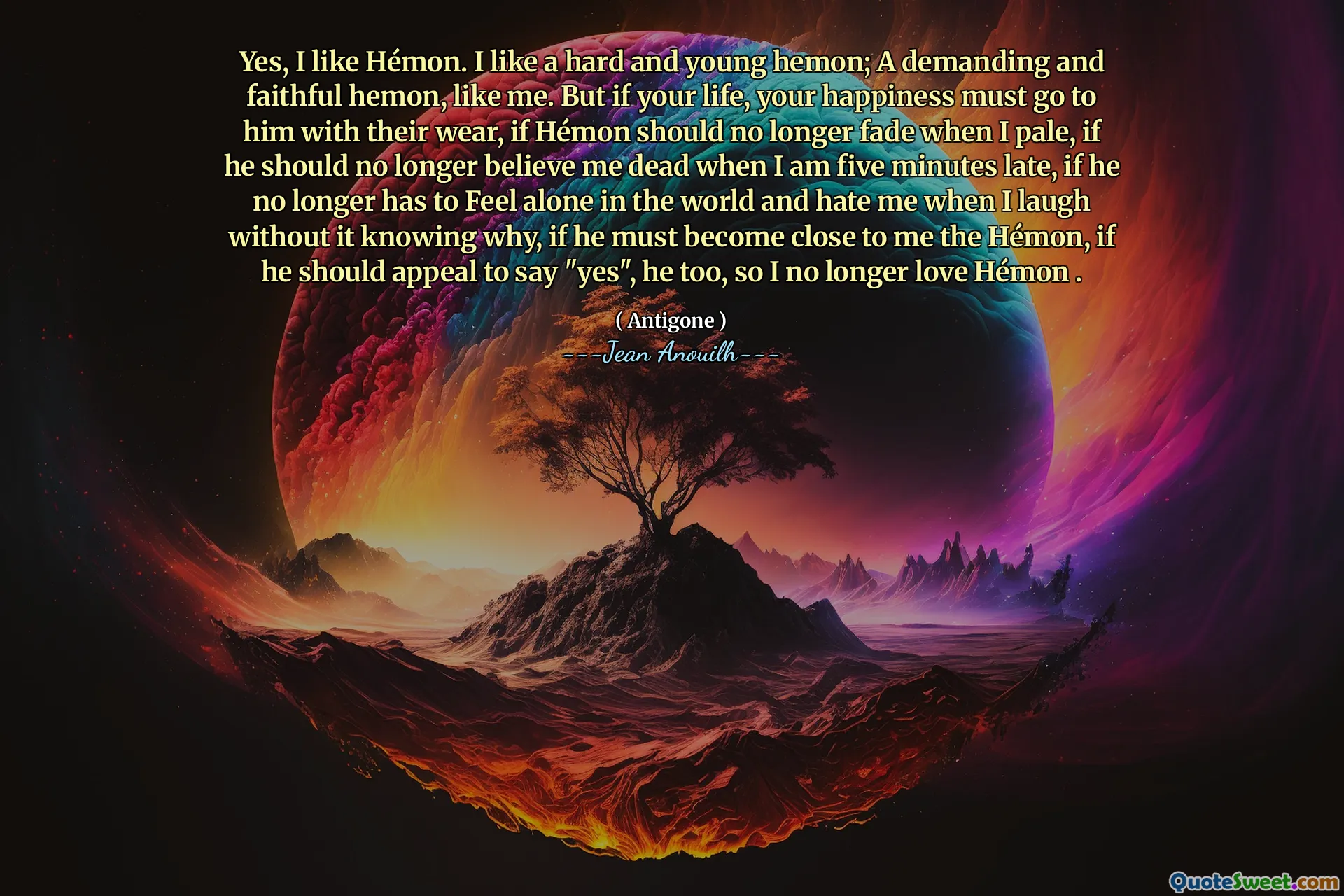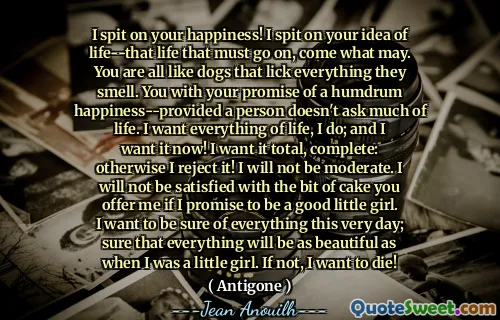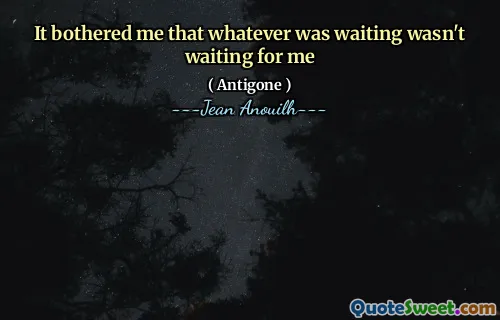
Yes, I like Hémon. I like a hard and young hemon; A demanding and faithful hemon, like me. But if your life, your happiness must go to him with their wear, if Hémon should no longer fade when I pale, if he should no longer believe me dead when I am five minutes late, if he no longer has to Feel alone in the world and hate me when I laugh without it knowing why, if he must become close to me the Hémon, if he should appeal to say "yes", he too, so I no longer love Hémon .
The speaker expresses a complex admiration for Hémon, emphasizing a desire for a strong and devoted partner who reflects their own loyalty. They appreciate the intensity and youthfulness of Hémon but also highlight the need for mutual understanding and a deep connection. The speaker defines love as a state where both individuals should feel secure and not burdened by doubts about each other’s feelings.
However, there is a shift in the speaker's thoughts as they recognize that if Hémon's happiness becomes contingent on them, or if he loses his individuality and strength, their love would change. They suggest that if Hémon becomes too reliant and stops embracing his own emotions, such as feeling alone or confused by the speaker's joy, their love would diminish, thereby losing its essence and meaning.











